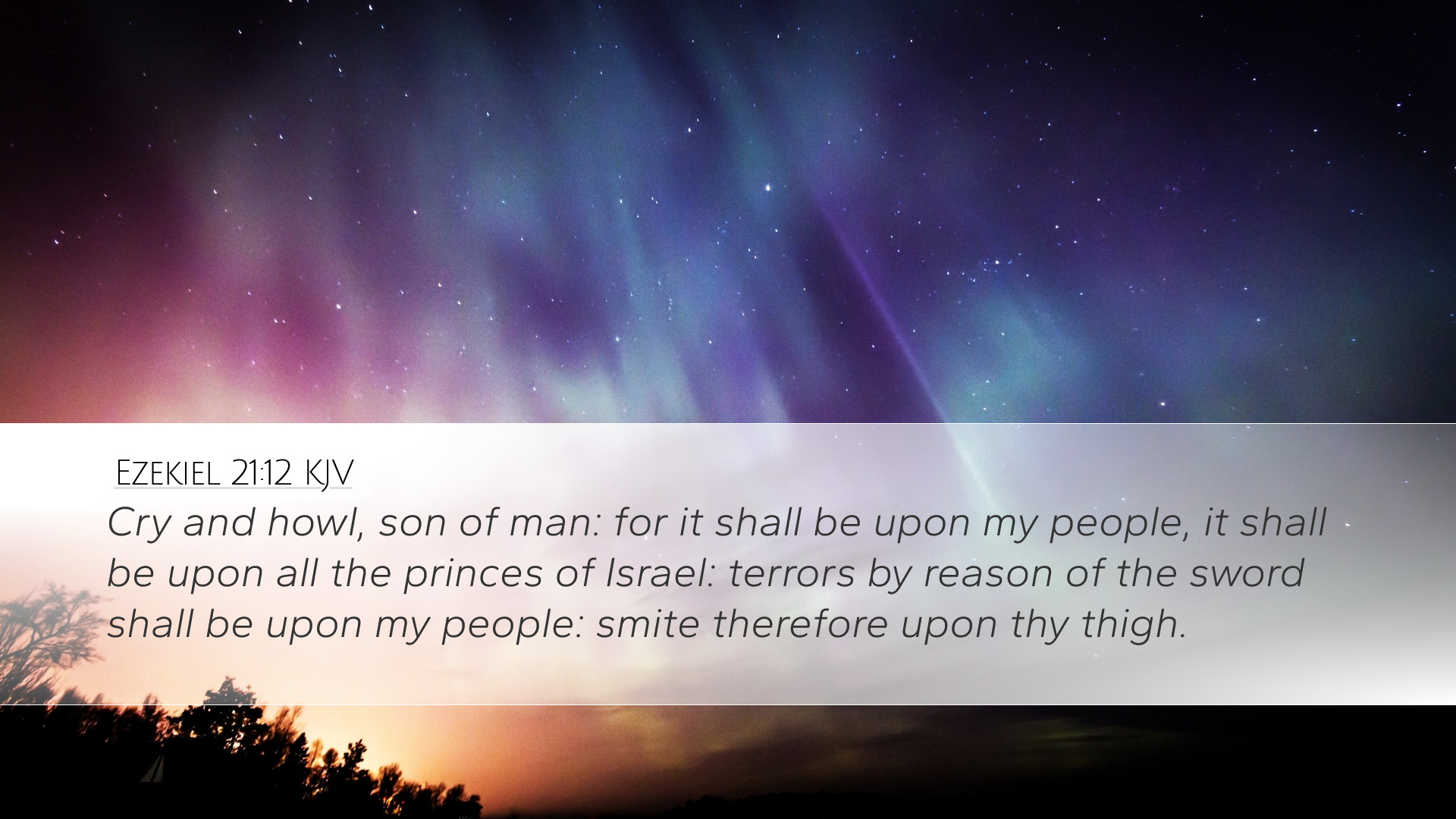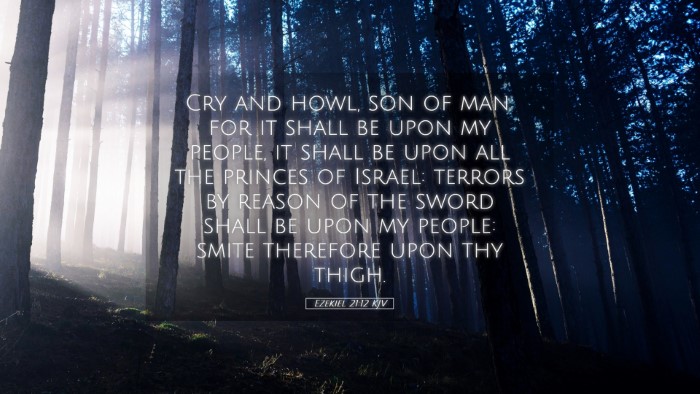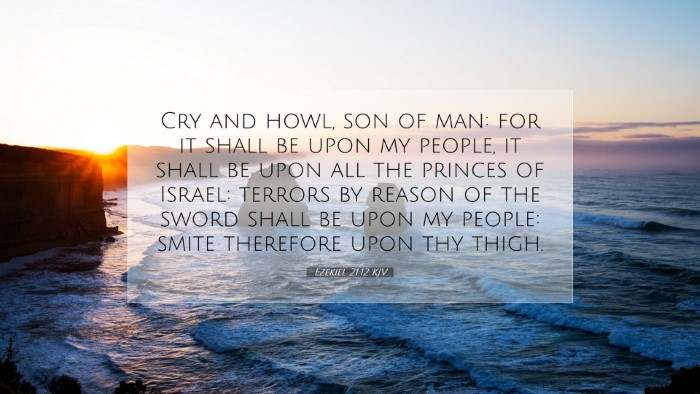Ezekiel 21:12 - Commentary and Insights
Ezekiel 21:12 states: "Cry and wail, son of man; for it shall be upon my people, it shall be upon all the princes of Israel: terrors by reason of the sword shall be upon my people: smite therefore upon thy thigh." This verse encapsulates the deep anguish and impending judgment that Ezekiel has been called to proclaim. This commentary extracts insights from revered public domain sources to enrich our understanding of this weighty text.
Contextual Background
To fully grasp the essence of Ezekiel 21:12, one must consider the historical and theological context of the Book of Ezekiel. The prophet Ezekiel, a contemporary of Jeremiah, served during a crucial period when Jerusalem faced imminent destruction by Babylon. He was a priest as well as a prophet, called to deliver a message of both warning and hope. His ministry underscores God’s sovereignty amidst judgment, highlighting the need for repentance while also addressing the realities of sin and its consequences.
The Emotional Tone of Ezekiel
In this verse, we find a palpable sense of urgency and sorrow. Ezekiel is not merely a mouthpiece; he is emotionally engaged in the prophetic task. According to Matthew Henry, there is a dual dimension to his call to "cry and wail." This signifies both the proclamation of lamentation over the sins of Israel and the deep personal anguish he feels for his people. Henry notes, “The prophet’s tears are as significant as his words; lamentation over sin paired with a call to repentance.”
Henry's observation highlights two important aspects:
- Prophetic Lamentation: The emotional response of the prophet emphasizes the seriousness of Israel’s plight.
- Call for Response: The call to “smite upon thy thigh” illustrates a physical manifestation of grief, showcasing how deeply the prophet feels for the consequences of sin.
Theological Implications
Albert Barnes emphasizes the gravity of the impending sword of judgment. He argues that the sword is a symbol of divine justice being delivered upon the people. The imagery here reflects the seriousness with which God views sin and rebellion. This judgment is not arbitrary; rather, it stems from a covenantal context where the disobedience of God's people invites severe consequences.
Barnes elaborates, stating that the "terrors by reason of the sword" are not just physical threats; they signify spiritual and psychological ramifications. The “terrors” denote fear and anguish that arise from recognizing the weight of guilt and impending judgment. This understanding is crucial for both pastoral and theological reflection and speaks volumes to how sin affects not only relationships with God but also the inner life of the believer.
The Call to Action
Adam Clarke, in his commentary, discusses the imperative nature of Ezekiel's prophetic role as a national spokesman. Clarke notes, “The stroke upon his thigh indicates a serious demeanor — an expression of regret and urgency.” This gesture signifies the weight of Ezekiel's message; it is a call to repentance and an admonition for Israel to consider the severe implications of their actions.
The prophetic action of smiting the thigh can also be interpreted as an appeal to wakefulness among the people of Israel. Clarke encourages leaders and pastors alike to engage in this kind of heartfelt proclamation, reminding us of our responsibility to take the weight of sin seriously and call our communities towards repentance and reconciliation with God.
Lessons for Today’s Church
Ezekiel 21:12 carries profound implications for the church today. The emotional engagement seen in Ezekiel’s response becomes a model for contemporary preachers and leaders. It emphasizes the need for a heartfelt connection to the message of repentance and grace. The spiritually lethargic condition of Israel serves as a warning to modern believers against complacency.
- Emotional Engagement: Leaders must echo the emotional weight seen in Ezekiel’s lament, fostering a culture of repentance and authenticity.
- Awareness of Judgment: The church is reminded of the seriousness of sin and judgment, advocating for a clear proclamation of the Gospel that includes warnings against disobedience.
- Call for Response: Just as Ezekiel called for action, today’s leaders should guide their congregations toward proactive engagement with their faith and a response to God’s redemptive work.
Conclusion
In summary, Ezekiel 21:12 serves as a poignant reminder of the dual nature of God's message – it speaks both of judgment and of the hope for redemption. It challenges today's church to embody this balance, encouraging a serious examination of sin while holding fast to the promise of reconciliation through Jesus Christ. The insights from Matthew Henry, Albert Barnes, and Adam Clarke collectively underscore the need for a prophetic voice that resonates with both urgency and grace.


